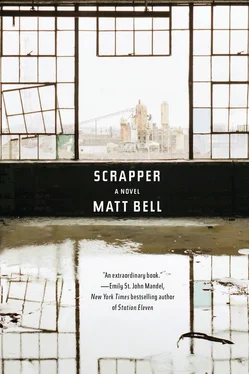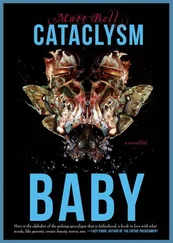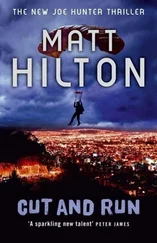He obsessed over certain parts of her shape, the ways of her speech. The swoop of her clavicle, the word clavicle . He could catch a sound or an idea and good luck getting rid of it. The titles and designations, the taxonomies of compound words. The exactness of language he desired, the way the right word might be used to name an object. The girl with the limp: it wasn’t like she hadn’t told him her name. He’d learned it the first night, never forgot it, could reproduce it immediately if asked. Jackie. He thought often of the sound of her voice but he didn’t hear her voice saying her name. Her name wasn’t who she was. When he thought of her he saw first her shape, her way of movement, her facial expressions. His affection wasn’t for the name but for the shape, wasn’t for the name but for the action it contained.
The girl with the limp reminded him. She had slightly darker hair, a similar arrangement of curves. Her personality was different but he learned to adjust. He no longer thought the wrong name when he awoke and found her beside him, turned away. He wasn’t confused anymore: this was Jackie and no one else. Sometimes she woke to find him staring. Sometimes he woke up and found her on top of him. This was another way she was different. They ate and they talked and they watched the violence upon the ice, they fucked and they stayed hungry. He watched her take pills for the nerve damage, another prescription for depression. She wasn’t supposed to drink on either but they stayed thirsty too. It would be winter soon and he wondered what would last until spring came. After the first month her resemblance to the past waned. Or else her body had come to supplant the memory of the other body, his southern woman. An intercession of the physical: he’d had this happen before, with other pairs of women. He started seeing someone new because her outline reminded him of someone else but one day he couldn’t remember how the first shape had felt.
She didn’t shave her legs as often as other women he’d dated. They were harder to reach in her condition or else she always wore pants or else she was comfortable with him, with herself. In bed she commented on his suntan, on the contrast between the darkness of his public skin and the paleness of everything else. He said his tan persisted all winter. You could work hard enough in January to not need a coat and some years he had. Her skin was a paleness everywhere, a luminosity in the dark. He could walk back into the blacked-out bedroom and know exactly where in the bed she was sleeping.
Her car was low and bright yellow and growled when she punched the gas, she had nerves but she wasn’t nervous. She wasn’t supposed to drive in case she had an attack but she said the doctors weren’t going to take anything from her. At night she would drive them twenty or thirty miles above the speed limit on the darkest stretches of freeway and on the right nights they might see no one else. She took risks because she wasn’t going to live forever, because, she said, there was a finite length of time she could be punished for her mistakes, and Kelly knew this already, understood this was how they had met, why she had invited him in their first night. She kept another cane in the backseat of her car but worse than the canes, she said, were the forearm crutches. Psychological torture, she said, and when you got prescribed a forearm crutch you knew you were never going to get better. He said he didn’t know there were prescriptions for objects but he could see how he should have.
I’ve been healthy all my life, he said. It wasn’t ever my body I’ve had trouble with.
With his southern woman he hadn’t used anything. With her he had let down this guard, then that one, some at her request, some out of the creeping apathy of the familiar. It had been a mistake, his walls built for a reason. Now he was using protection again and said the condoms caused him trouble. He got nervous about the delay ripping the packages, snapped the latex against the skin during removal. All the little indignities collected. The reservoir nippled at the end of his cock made him feel ridiculous. If he couldn’t stop thinking, then he had trouble staying hard but he pretended his lack was something he could hide with enthusiasm. The girl with the limp wasn’t on the pill but she told him she couldn’t get pregnant. Something about ovarian cysts, surgical scarring. He didn’t ask questions. He let her know he was willing to listen but more often they kept their pasts behind them.
When she said Kelly during sex or after waking it was like a mystery unfolding. He had never loved his name except in the way a woman said it, except when she said it, when she said it like the woman before had. Their sex was slow and quiet and he did most of the work so the exertion wouldn’t cause her an attack. It wasn’t what he wanted to think about but he had to keep her safe. When her orgasms came they were soft and sudden: a movement of her mouth, a quick clenching, then the shuddery squeeze and release, the subtlest of hiccups.
Afterward they laughed and talked and smoked. Survivors of the day, sharing the inexplicable unspeakable elation that everything wrong in their lives had not brought them to ruin. But then she said that if she did get pregnant she would have to have an abortion because the pregnancy could worsen her condition.
He said there wasn’t anything to worry about. He wasn’t getting anyone pregnant, ever.
I had a vasectomy years ago, he said, speaking softly. He waited, listened to her breathing until he wasn’t sure if she was awake.
I never wanted kids, he whispered. I’m glad you can’t have children.
He’d thought she might be sleeping but now he saw her mouth contorting in the dark. She turned over, pulled the sheet across her bare back. He said, There was a woman I loved. The woman had a son. We lost our house and then I lost them.
IN THE CHURCH BASEMENT they circled the chairs, found a volunteer to begin. One by one they shared what had been lost and when a speaker completed her story the others clapped, hugged her, thanked her for sharing. Never a critique, always an acceptance. All those quavering voices, their narratives of death. The living came to meeting after meeting until they knew how to structure the story. These were the basic redemption tales, stories of education through suffering: All they had to do was learn to love someone through their hurt. To love them as much as when it had been easy. Or else learn to let someone go because of how bravely they’d borne their dying, their death. Or else they hadn’t come over to forgiveness, harbored some old pettiness or even well-deserved hate, because who hurt us like the people who were supposed to love us?
Kelly liked the people who couldn’t name their grief the best. If your betrothed died you were not a widower. There was no word in the language for a man who had lost his child before he ever got the chance to say the word father . It was impossible to offer your story by your title, to transfer it easily and without explanation, in the way husband told a tale, in the way father did.
If he told a story, this might have been one story he told. It wasn’t exactly the truth but for him the absence of the southern woman and her son had become a kind of death, a going away of love never to be undone, unfelt, forgiven.
Or else he might have told an earlier story, might have spoken of his father, about how he could have chosen to sit beside his mother at the moment of his father’s death, witnessed the spittle and the gurgle and the waste. What revenge would it have been to see the bones shining beneath the skin, to see all the crawling blue scrawl between? His father would have been enfeebled, weak of speech, unable to breathe. A tonnage of tubes pumping life back into a black balloon. A sack of air and blood, some deathly monster. Not the shape of myth he remembered best, the man taller and stronger and smarter than himself, always and forever the hale creature of his youth.
Читать дальше












